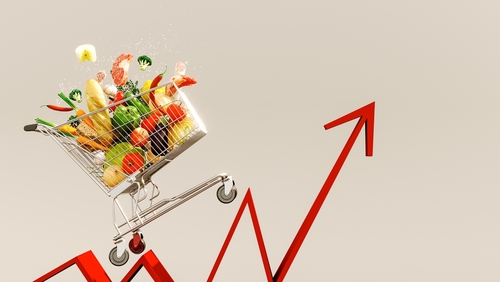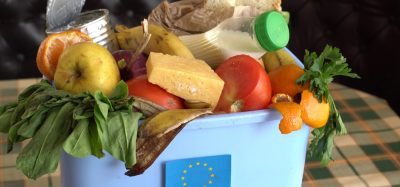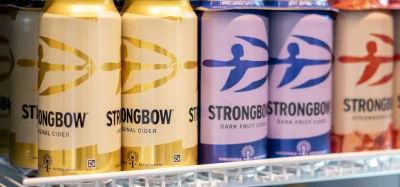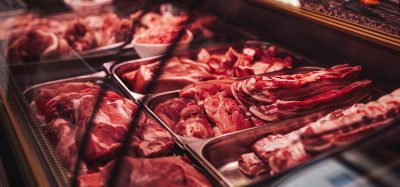Understanding rising British food prices
Posted: 10 September 2025 | Dr Clive Black | No comments yet
Rising UK food prices in 2025 aren’t down to imports or commodities—they’re the result of Labour government policies hitting working families and the grocery sector. Dr Clive Black unpicks the causes and long-term impact.


Rising food prices in the UK are being driven less by commodities or imports and more by government policies that are hitting working families and the grocery sector. Credit: Shutterstock
The usual suspects aren’t to blame
Lots of folks are concerned about rising British food prices for a variety of reasons as we enter autumn 2025 – UK grocery inflation in August was c4.0-5.0percent. The cause of those rising food prices, however, is far from the usual sources, ie, rising commodity prices, higher crude oil costs or weaker sterling (either combined or in isolation) – the latter of which makes imports to be paid for to stronger currencies more expensive (Great Britain is only c40 percent self-sufficient in food).
The prime cause of food inflation as the runway into Christmas 2025 approaches is the British Government.”
Happily, nay thankfully, this traditional trinity of British food price inflation is presently rather muted in aggregate. Yes, some protein prices are on the rise, notably beef and chicken, while chocolate bars are no longer such a cheap and cheerful treat, certainly in comparison to most fruit. No, the prime cause of food inflation as the runway into Christmas 2025 approaches is the British Government.
Labour’s economic experiment hurts working people
It is true that the Labour Party inherited a total car crash of a political system when it moved into Whitehall in July 2024, reflecting the collective incapability and incompetence of successive Conservative regimes. Indeed, such is the vacuum of talent in the collective blue and red colours of British politics, that folks are exploring the vagaries of the lunatic Greens, the virtue-signalling and spineless Liberals as well as the simple slogan St George’s flag-waving Reformers. Incredibly this circus at Westminster does not look so out of place at Stormont, Cardiff or Holyrood either. Ugh.
That Labour Government, however, has shown itself in economic terms to be a collective of ideological naivety and stupidity. From a party that had at times credible economic growth mantras pre-election, Prime Minister Starmer has reduced his Chancellor to tears and lost the dressing room of British business people, entrepreneurs and innovators – the latter a group that Labour Party rhetoric does not see as ‘working people’.
The Chancellor’s October 2024 Budget has directly led to hundreds of thousands of workers losing their jobs through ill-informed policies and a raid on business.”
Yet due to the questionable first year or so of Labour Party economic policy, working people are feeling direct pain. The Chancellor raided business in a ‘Budget for Growth’ that has subsequently seen the economy stagnate, the cause of which cannot be wholly blamed on President Trump and his tariffs. No, Reeves recklessly talked down the economy in summer 2024 and caused a material mark down in both business and consumer confidence that is struggling to recover.
Her Budget in October 2024 has directly led to hundreds of thousands of workers in the UK food & beverage and retail sectors losing their jobs through the combination of an inflation busting National Living Wage settlement, the National Insurance Contributions raid – ridiculously labelled as not impacting the working people – plus wider ill-informed and at times crass policies around energy and packaging (extended producer responsibility).
The magnitude of such costs forced onto the British food system is coming through in mid 2025; it takes time, especially for private-label food firms, to recover elevated costs from the market. That time delay means that the current round of cost increases will be evident until summer 2026. On top of this, there will be the 2026/27 National Living Wage award yet to be announced, no doubt further energy and packaging cost increases and, for larger store operators, a major hike in business rates. It is also worthwhile mentioning that in the midst of a dysfunctional planning regime, lower stocking densities for poultry is contributing to a shortage of fresh domestic chicken, a gap being replaced by imports. Ugh!
Quite when and how Labour may reform UK planning laws remains to be seen; it will be a third of the way through its term in office not long after Christmas 2025 and nothing has been done to date. One senses that domestic poultry growers and processors are not holding their breath, understandably so. Hence, it is reasonable to argue that food prices will remain elevated in the UK until at least spring 2027, and that is to assume that the aforementioned traditional factors – commodities, crude oil and sterling – remain in a benign position, which may not be the case.
Blame Westminster, not the supermarkets
Rising food prices do negatively impact working people and the poorer those people are, the more challenging feeding the family becomes. However, when posing the question of why food prices are rising, we need not look much further than 11 Downing Street. Loons like Sir Ed Davey should be asking this question rather than aimlessly suggesting that the Competition & Markets Authority (CMA) once again investigates a supermarket sector for supernormal profitability – as ridiculous a suggestion in 2022 as it is now. Indeed, if the British are to have secure supplies of safe food, it is likely that the economic returns across the system must rise to provide the investment funds needed to meet market, regulatory and societal demands.
Do not knee-jerk a response by blaming a rip-off food system—look instead at a government that speaks with forked tongue.”
Furthermore, in consideration of working people, rising food prices are now a stated concern of the Monetary Policy Committee (MPC), which votes on setting British interest rates – ie, the cost of money. For anyone borrowing for a mortgage on a house or a loan for a car and so forth, the cost of money is relevant. The duration and extent of food inflation is now starting to feature in the MPC’s narrative around ongoing inflation, secondary impacts with respect to wage awards, and so the perpetuation of wider consumer price levels.
(Note, when considering 2024/25 it is also important to note that Labour has not only helped to decelerate economic growth it has also been unable to control its expenditure while public sector productivity collapses. So much so, that domestic and international lenders to the UK Government, gilt buyers, are now demanding coupons that are very high western economic standards – a key measure of poor financial capability and credibility; the antithesis of stability. About one in eight pounds raised in taxes services ballooning national debt).
So, in the event that people complain about the ongoing cost of living in the UK, when it comes to food, do not knee-jerk a response by simply blaming a rip-off food system. In that respect supermarkets represent about two-thirds of national food volume, noting the important food & beverage and institutional channels too – the latter of which is effectively an arm of local and central government. Instead, think about the sources of inflation; think too about a government that speaks with forked tongue when it comes to its policies and their impacts on working people (job losses, higher food prices, taxes spent on servicing the national debt, and elevated interest rates) and maybe reflect too on what a capable political regime with a considered long-term industrial strategy on food, among other things, could achieve. Ugh!
About the author


Related topics
Food Safety, Food Security, Regulation & Legislation, Supermarket, The consumer
Related organisations
Competition & Markets Authority (CMA), Conservative Party, Green’s, Labour Party, Liberals, Monetary Policy Committee (MPC), Reformers, UK Government









